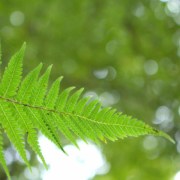How Military Pokes Holes In Acupuncture Skeptics’ Theory
![]()
Acupuncture has made its way into the mainstream in military medicine in USA as a battlefield pain relief.
The explanation why military embraces acupuncture may be simple: “As some top medical officers put it, though, there’s nothing like pain to make someone open-minded”
Listen to NPR radio report covering this topic here:
Transcript of the podcast:
And now to a treatment that years ago migrated from China to the U.S. and is now being embraced by America’s military, acupuncture is now among the alternative treatments available to those in uniform. The top brass has told Army doctors to rethink their pill for every ill approach to pain. So for the 47000 troops have been wounded in Iraq and Afghanistan, that means there are other options like massage, chiropractic treatments and especially acupuncture. Blake Farmer of member station WCPN reports.
The military hopes to win over sceptics, many of them in uniform. I’m one of them.
Colonel Rochelle Wasserman is the top doctor for the Warrior Transition Unit at Fort Campbell, Kentucky.
But to her own surprise, she’s also now the unit’s physician, trained to do acupuncture.
I actually had a demonstration of acupuncture on me and not a spring chicken, and it didn’t make me sick again, but it certainly did make me feel better than I had. So I figured, hey, you know, let’s give it a shot with our soldiers here.
In recent years, military doctors have turned to acupuncture and special pain clinics and for troops in battle zones. But last year, the Army surgeon general began making the alternative treatments more widely available.
All right. In a fluorescent-lit exam room, Wasserman sticks ballpoint sized pins in the ears of Sergeant Rick Romelio.
Let’s go ahead and start with the points that we did before in Afghanistan.
Romelio broke his back hip and pelvis during a rollover caused by a pair of rocket-propelled grenades. He still walks with a cane and suffers from mild traumatic brain injury. Pain is an everyday occurrence, which is where the needles come in.
And what would you say was the comfort level while you actually have them in any major problems?
I kind of got treatment and this is the first treatment that I’ve had where I’ve been like, OK, well, you know, I’ve actually seen a really big difference.
Romelio says his headaches have disappeared and he’s relying less on his cabinet full of pain medication. To Colonel Kevin Galloway, that’s mission accomplished. He’s in charge of carrying out the recommendations from the Army’s Pain Management Task Force, which focused heavily on unconventional therapies.
You can throw fairly cheap pharmaceuticals at the problem now and push the problem to someone else later.
If you’re not really working on what the genesis of the pain is, Galloway says if soldiers get hooked on high powered painkillers, the VA may be dealing with the side effects for decades to come. Already, at least 40 per cent of vets entering the VA system are coping with pain.
New academic studies from places like Duke University back up acupuncture as an alternative to medication.
We call that academic medicine when it gets into medical schools. Harriet Hall shares the scepticism found in many corners of the medical community. She’s a former Air Force flight surgeon to the way she reads the science. Acupuncture does no more than a sugar pill to offer a placebo, she says, is unethical.
The military has led the way on trauma care and things like that. But the idea that putting needles in somebody’s ear is going to substitute for things like morphine is just ridiculous.
But to quote some top medical officers, there’s nothing like pain to make someone open-minded. Staff Sergeant Jermaine Lewis says he’s tried at all. Wow.
Physical therapy, occupational therapy, PTSD group, anger group, stress group. You know everything.
Lewis is trying to overcome a traumatic brain injury that followed him home from Iraq five years ago.
He’s still dependent on medication.
And the soon to retire infantryman says he’s scared that I have to be on it for the rest of my life and I will get accustomed just to taking them. And I don’t want to be that way. You know, I want to be normal like everybody else.
But if being normal depends on regular acupuncture treatments, the Defense Department has more convincing to do. Tricare, the military’s own health plan for service members and retirees, still doesn’t cover acupuncture.
For NPR News, I’m Blake Farmer in Nashville.
And this is Morning Edition.
From NPR News, I’m Renee Montagne.


